#exposition ]
Note
I love your writing. It's amazing! If you haven't done so already, I'd like to hear your advice or tips on sentence flow and how to transition between character thoughts and whatnot (just flow in general) because I feel like that's what I struggle with when it comes to writing for me.
I am assuming that you mean transitioning from dialogue/commentary to exposition paragraphs? that's what I'll go with pls tell me if I'm wrong!!!
lemme write an example:
'she'd never seen such a magnificent flower before - the petals were a silvery velvet that glistened in the dawn sunlight. It reminded her of her mother's skirts. A sense of warm nostalgia swept over her at the memory of the flowing fabric that swayed around Mother's ankles.
the rest of the field contained similarly beautiful flora, varying in size from thimble to elephant ear.'
-
The pink is a character opinion/thought, and the white is the exposition and objective description. when a paragraph is narrated by a character, it reads best to mix them together. When you chunk it like this:
'she'd never seen such a magnificent flower before. It reminded her of her mother's skirts. A sense of warm nostalgia swept over her at the memory of the flowing fabric that swayed around Mother's ankles.
the petals were a silvery velvet that glistened in the dawn sunlight. the rest of the field contained similarly beautiful flora, varying in size from thimble to elephant ear.'
and the expo/narration are kept separate, it's harder to visualize the connection between observation and the reactive thought.
tip 1: keep similar sentences together.
In the above example, I grouped the character's observation of the flower together with the actual description of it.
After, I grouped the memory of the mother's skirts with the emotion.
Finally, the next paragraph was still describing the foliage (aka tying in the initial description), though removed from the narration and still progresses throughout the scene.
does that make sense?
no?
lemme try again guys I got this.
When you transition from 'thought' to 'sight', it might look a little daunting. you'd think "gee I just spent an entire page describing an intense traumatic mental spiral. how do I transition to writing about the room they're in?"
Pick the similar attributes. The middle of the Venn diagram. Okay, character is having a panic attack. It's intense, it's descriptive, there's a lot of inner dialogue. Now, we have to describe the aftermath in relation to the state of the bedroom.
pull them out slowly. If a character is deep in reverie, describe the room how it feels to them. This is a slow transition out of 'me my mine everything about my opinion' description, to 'this is how it is cold turkey' description (plot development).
Example:
(panic attack, oh my god we're dying the world is ending I can't breathe help aahhh)
he shivered. The floorboards had grown cold since the episode started. A cool breeze slithered through the room, chilling him further. leftover adrenaline raised gooseflesh on his arms.
This is entirely objective. no opinion was inserted, but there was the stimulus and physical reaction to the surroundings. this still draws in the character-focused analysis without getting stuck in his head.
2. great sentences think alike. I sometimes feel that my transitions are chunky and not very smooth. Pick common themes to tie them together. "Oh okay, her skirt is blue, it's blue like cornflowers, cornflowers were anna's favorite, now i'm thinking of anna, she'd love it here. where is here? here is in a farmhouse kitchen with...." boom. I made a domino effect from the starting description (blue skirt) to the final destination/scene progression (farmhouse desc).
3. know when you've beat the dead horse. If you've been circling the drain over one thought or milked all the setting adjectives possible for one area, move on. when a scene/dialogue is sufficiently described, the readers are ready for a break.
does that help a little bit?
there was a second part to the request, right? sentence flow? cool beans.
Sentence flow is actually a really cool concept that if you master, you can add so much depth to your writing (i'll def make a part 2 post, stay tuned!).
If you structure a sentence really long and fast without the punctuation and it's just going and going and going oh no-
you start to feel anxious, right? when's it gonna end? what's the kicker? the tension is building and building....
Sentences are short. thin, staccato. not a lot of meat. no meat, maybe. just. bare. bones.
punching, intense, hard thoughts. a shocking discovery, your character doesn't have the processing capacity to think eloquently.
maybe they disobey grammar rules. fuck grammar rules. don't actually tho because you guys lowkey suck at grammar and i'm angry. no don't point out my bad punctuation i'm the teacher here.
point is, the flow of the sentence dictates the reaction. Shakespeare uses this with meter. when the meter is disrupted, it means something bad has happened. In Romeo and Juliet, every time a lie is told, the meter shifts out of iambic pentameter. it's like a 'heads up, something's wrong' to the audience.
USE THIS!!
also - read your story out loud. writers have a tendency to write how they talk. I am a comma fiend because I go off on so many anecdotes I pause all the time while I talk. When I read it out loud and take the necessary pauses though, I want to vomit.
If it's smut I can see how this might be hard for you, but another good idea is to hit hard the grammar rules. If there's a bunch of commas - read the sentence and enunciate the commas. that's how it will read to your audience.
common problems with sentence flow.
feeling long and heavy. if you're describing the action and you feel like you're being swamped in adverbs, take a look at your passive and active voice. passive: "The ball was kicked by Anna." active: "Anna kicked the ball." if your sentences are long and dragged down with adverbs, you're probably really passive.
too much information, not enough words. Thesaurus!! if you've been puzzling over a paragraph and it turns out all you needed were some synonyms, pull out a thesaurus! and a dictionary because remember: similar is not the same. just because a word has similar meanings doesn't mean there aren't special addendums to each.
lost in the sauce. where are we? what's happening? who are you? i'm hungry. too many succulent words! your sentences so big backed they out-backed Outback. long, frivolous words and ten-mile high stacks of adjectives only work sometimes and infrequently. otherwise you spend so much time describing the thing, we forget what the thing actually is.
losing the motivator. why are you writing this sentence/paragraph? what purpose is it supposed to be serving? keep that in mind so you don't lose track and if you do, it'll be easier to get back on it.
repetitive meter. the sentences follow the same pattern, like this one. almost like they're in a loop, circling forever. there's no escaping, you'll like read this till you die.
did you see the pattern? it starts to make you dizzy after a while, doesn't it? This is a common problem and fairly easy to break out of. Just chop up the sentences and glue them together.
*ahem* like so:
The sentences follow the same pattern, like this one. Almost like they're circling in a loop forever. There's no escaping. You'll read like this till you die.
same words, with some added/subtracted punctuation. If that doesn't work, rearrange the order, add in some new verbs or adjectives, maybe add a few filler sentences to space the pattern out.
that's all folks, i hope that answered your question, if not feel free to say so! I'm not offended.
xox keep writing!
#writing help#fiction writing#writing tips#writing advice#how to write#writing community#on writing#creative writing#exposition#sentence flow#writing prompt#dialogue prompt#writing ideas#writblr#requests#anon ask#thanks anon!
22 notes
·
View notes
Text

Palace of Electricity sculpture. L'Exposition Universelle de 1900 : détails de sculpture. 1900.
Internet Archive
#paris#1900#world's fair#exposition#architecture#sculpture#art#ornament#radiating#nemfrog#early 1900s#1k
3K notes
·
View notes
Text
Expository writing is basically the drawing hands of prose fiction; it's clangingly obvious when it's done poorly, but it's even more awkward when you try to avoid doing it at all, and those who are best at it usually got to be that way because they have some kind of fetish.
3K notes
·
View notes
Text
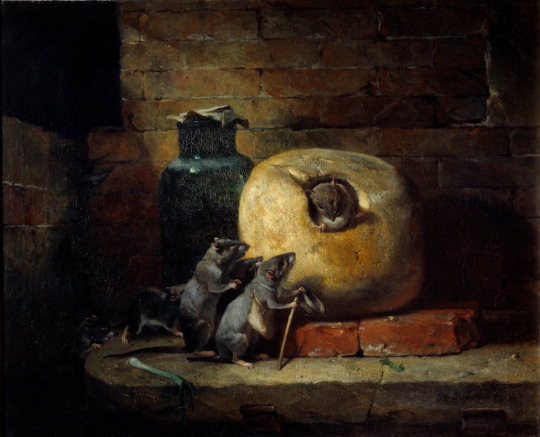
Philippe Rousseau, 1816-1887 - The rat who withdrew from the world
#bizarre au havre#artist#art#painter#rat#exhibition#animal#animals in art#philippe rousseau#artiste#peintre#exposition#l'animal dans l'art
5K notes
·
View notes
Text



















Cyanotype - La Cadière d'Azur - Bruno Sussi 2023 ©
344 notes
·
View notes
Text
When to Info Dump
I was taught as a young writer to never ever ‘info dump’. An info dump is a paragraph (or several) that just runs the readers through info they need to know. While avoiding info dumps is typically a good practice—lots of information at once can be overwhelming, boring, or ‘cheap’—as with most things in writing, never say never. Recently, I finished a book that info dumps often, and with intention, and it worked.
To info dump well, you actually have to do it often (or relatively often). Just one info dump somewhere in the middle or beginning of the story is going to seem like a mistake. Using it as a literary technique however, and it adds a sort of intrigue, whimsy, or discordant tone to your story.
In this way, it becomes a quirk of your narrator’s voice. It should match or make sense with the character you are following. A super serious, meticulous character may info dump in the way they would list off the information they know. A more bubbly character may info dump out of excitement to share their interests.
Which brings us to the type of information you can reasonably info dump without getting in trouble. Of course, the information shared should be stuff that your character would know, but also, information that they would care to share.
For example, that serious character would info dump only pertinent, personally important information, whereas the bubbly character probably wouldn’t info dump about real estate or politics—unless of course it’s part of their special interests. A detail oriented character may only info dump about things they are noticing in the moment. A history buff would definitely info dump about culture and the past.
Essentially, use the right amount, for the right character, with the right information, and you can pull off an intentional and well-done info dump. Otherwise, avoid it!
What are your thoughts on exposition or info-dumping?
#writing#writers#writing tips#writing advice#writing inspiration#creative writing#writing community#books#film#filmmaking#screenwriting#novel writing#fanfiction#writeblr#info dump#exposition#when to info dump
2K notes
·
View notes
Note
Here's the piece of Swanatello lore I can't make fit: why did the lake call him Othello? Why that name?


[ prev ]
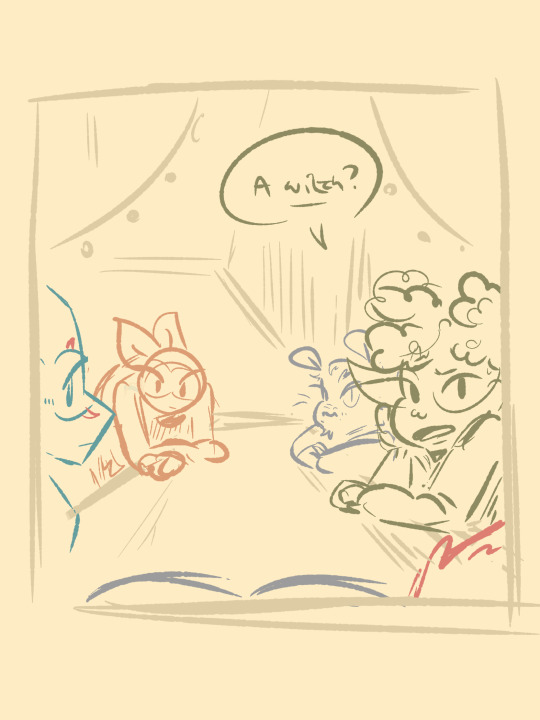

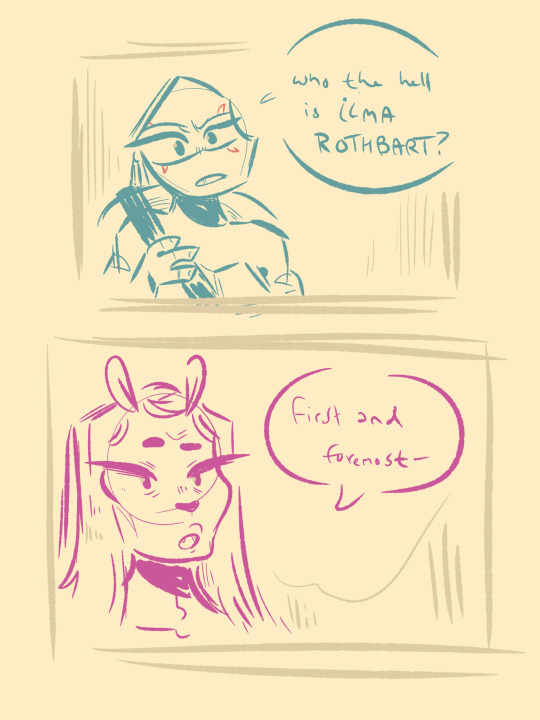
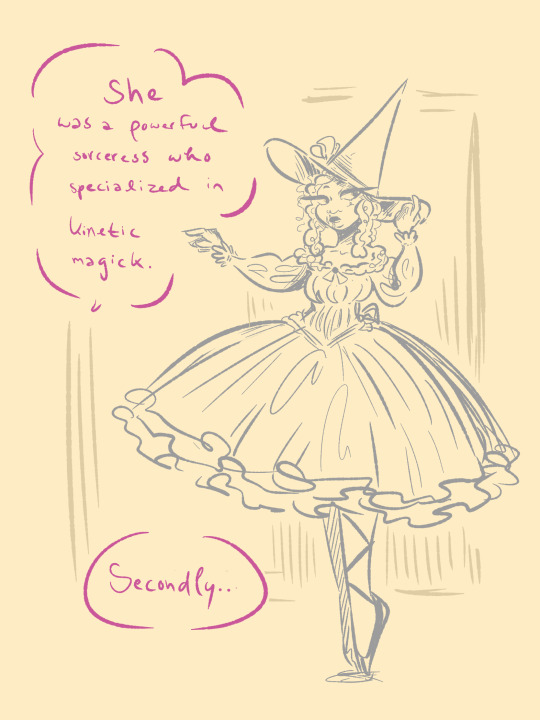
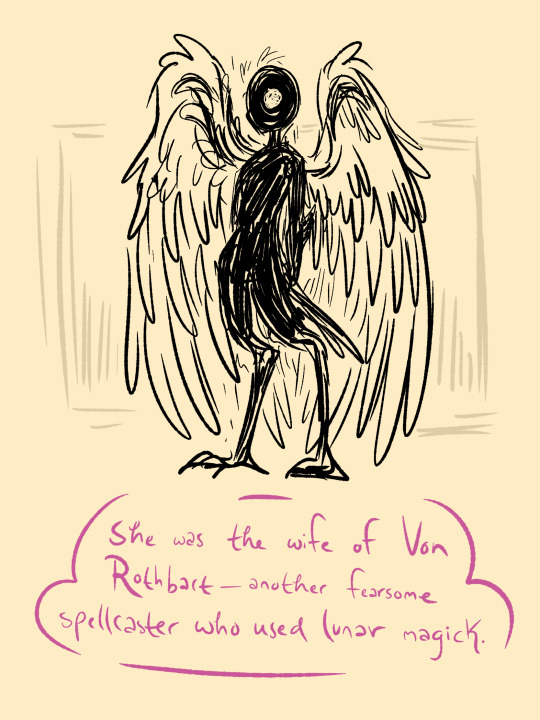
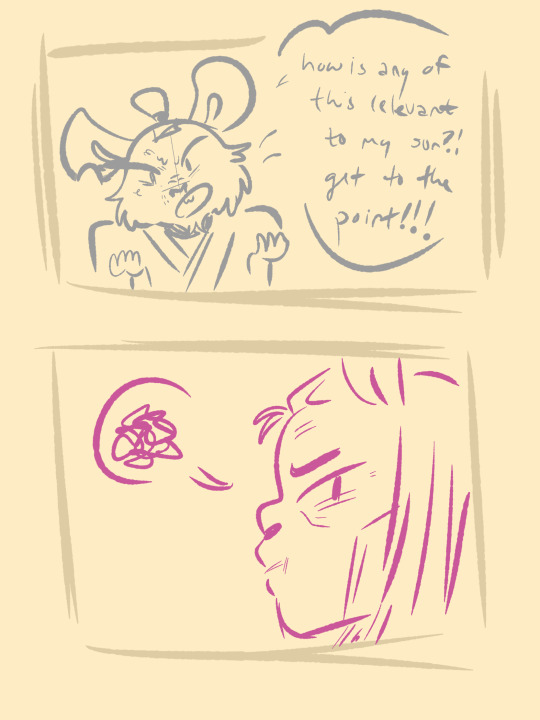

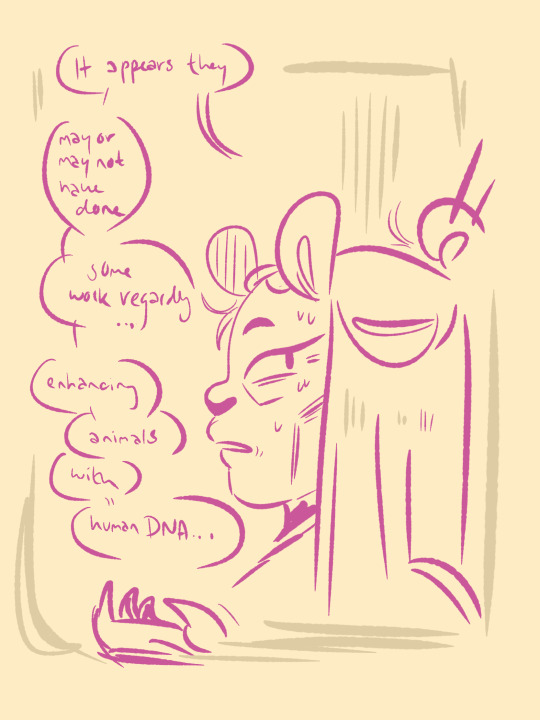





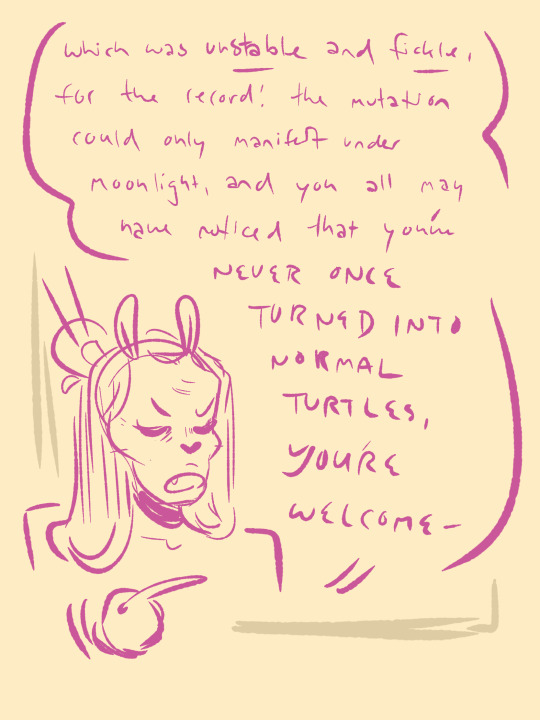

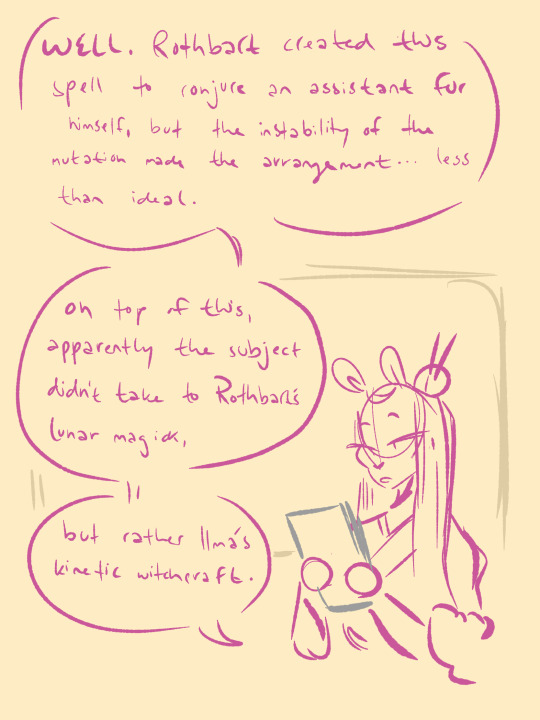
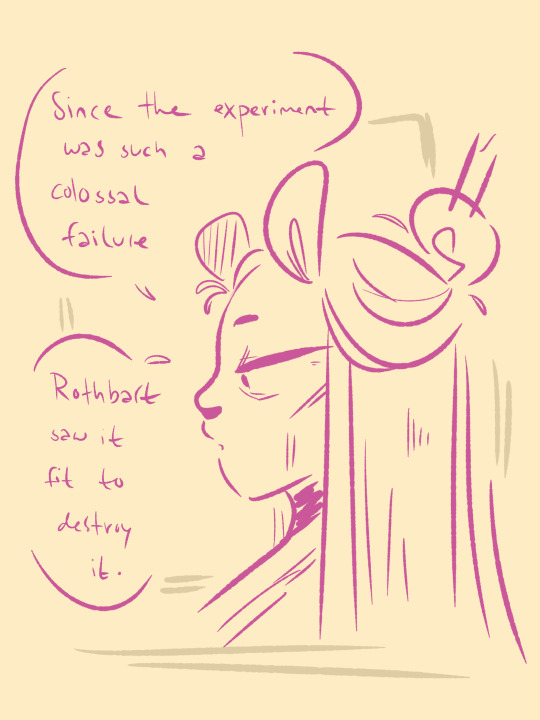

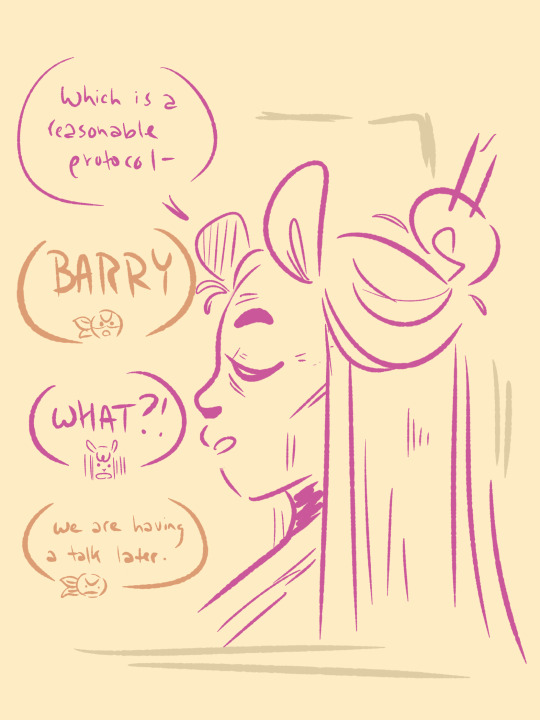



swanatello.
[ start ] [ prev ] [ next ]
#god fucking#EXPOSITION#wipes brow#swanatello#rottmnt#rottmnt au#rottmnt comic#rise of the tmnt#rise of the teenage mutant ninja turtles#tmnt#tmnt 2018#donniesona#fidgetwing
1K notes
·
View notes
Text


by melodyinsoko
#seoul#south korea#korea#book store#aesthetic#light academia#exposition#cottagecore#fairycore#flowers#photography#curators on tumblr#up
2K notes
·
View notes
Text
One thing I've been delighted to realize in life is that people absolutely do subject each other to impromptu history lectures about the state of the world and how it got this way.
That is a totally realistic expository device. People absolutely talk like that.
The trick to making it really work is making sure to develop voices and opinions for the characters being used for this that are clear and distinctive, and stick to these rigorously. The more actively human the parties, the more it can become the sort of interaction you see all the time at the pub, and not the writer clumsily seizing on a mouthpiece.
The three main modes are first, preaching to the choir, where you're just restating what you already know you all agree about, which is basically a group bonding behavior but does also function as sort of ideological dress rehearsal sometimes.
Second, argument, ranging from virulent disagreement through irritating harangue to the sort that is basically a form of play, where maintaining opposing positions on some point is something one does as much to have the pleasure of arguing it regularly as anything.
Third, the lecture to an audience that while not actively arguing, is not positively engaged either. This is a very popular model but it's also the worst one. The urge to lampshade your own expository sins and the fear of being boring by placing that boredom in the story is almost always counterproductive; generally your readers will feel the way you tell them to feel, and boredom is quite easy to suggest.
(If you aren't confident you can influence your readers' feelings to that degree probably spend some time working on less ambitious projects to build up either your skillset or your confidence.)
Don't use the 'unwelcome lecture' approach to embedding an infodump unless 1) the bit of exposition is very short or 2) your intention is for the readers to obtain but overlook a vital clue amidst the boring; in the latter case ideally make the lecture the B-plot of a scene where something more arresting is happening also.
180 notes
·
View notes
Text
Part 11
(Prev) (First)

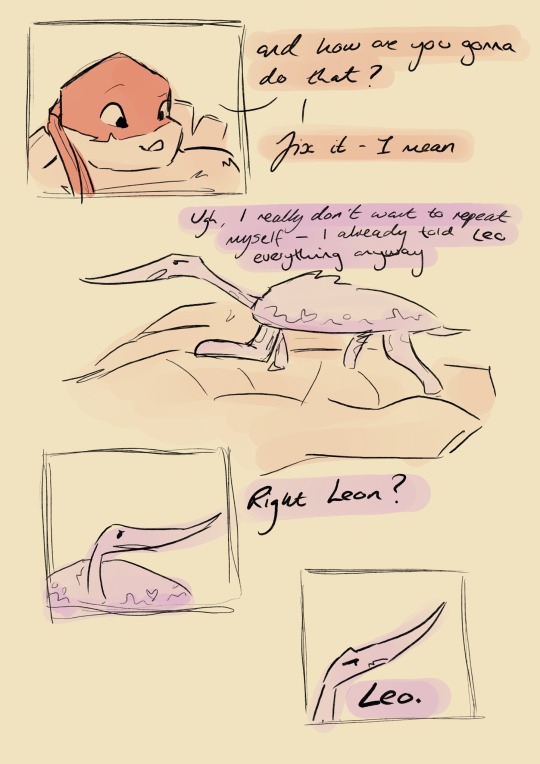
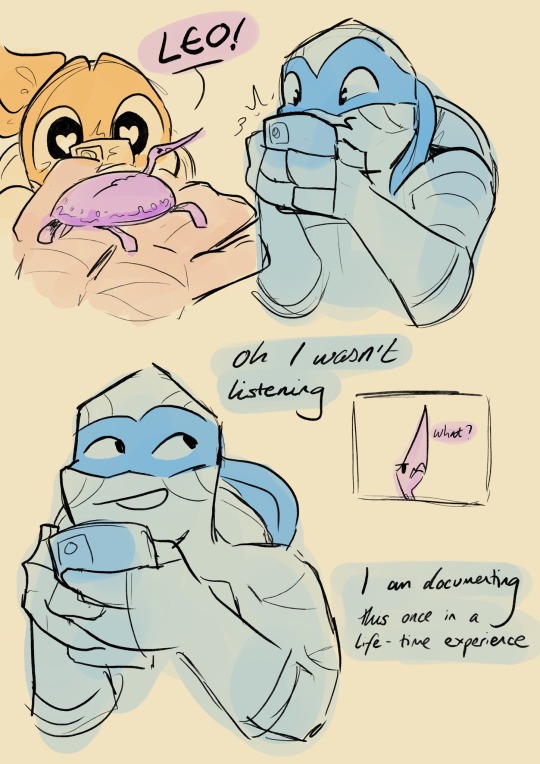
Leo your ADHD is showing
(Next)
#next part:#exposition#omg plot incoming#rottmnt#unmutated donnie au#rottmnt donnie#rottmnt donatello#rottmnt mikey#rottmnt michelangelo#rottmnt leo#rottmnt leonardo#rottmnt raphael#rottmnt raph#unmutated donnie comic
940 notes
·
View notes
Text

Homebrew Mechanic: Meaningful Research
Being careful about when you deliver information to your party is one of the most difficult challenges a dungeonmaster may face, a balancing act that we constantly have to tweak as it affects the pacing of our campaigns.
That said, unlike a novel or movie or videogame where the writers can carefully mete out exposition at just the right time, we dungeonmasters have to deal with the fact that at any time (though usually not without prompting) our players are going to want answers about what's ACTUALLY going on, and they're going to take steps to find out.
To that end I'm going to offer up a few solutions to a problem I've seen pop up time and time again, where the heroes have gone to all the trouble to get themselves into a great repository of knowledge and end up rolling what seems like endless knowledge checks to find out what they probably already know. This has been largely inspired by my own experience but may have been influenced by watching what felt like several episodes worth of the critical role gang hitting the books and getting nothing in return.
I've got a whole write up on loredumps, and the best way to dripfeed information to the party, but this post is specifically for the point where a party has gained access to a supposed repository of lore and are then left twiddling their thumbs while the dm decides how much of the metaplot they're going to parcel out.
When the party gets to the library you need to ask yourself: Is the information there to be found?
No, I don't want them to know yet: Welcome them into the library and then save everyone some time by saying that after a few days of searching it’s become obvious the answers they seek aren’t here. Most vitally, you then either need to give them a new lead on where the information might be found, or present the development of another plot thread (new or old) so they can jump on something else without losing momentum.
No, I want them to have to work for it: your players have suddenly given you a free “insert plothook here” opportunity. Send them in whichever direction you like, so long as they have to overcome great challenge to get there. This is technically just kicking the can down the road, but you can use that time to have important plot/character beats happen.
Yes, but I don’t want to give away the whole picture just yet: The great thing about libraries is that they’re full of books, which are written by people, who are famously bad at keeping their facts straight. Today we live in a world of objective or at least peer reviewed information but the facts in any texts your party are going to stumble across are going to be distorted by bias. This gives you the chance to give them the awnsers they want mixed in with a bunch of red herrings and misdirections. ( See the section below for ideas)
Yes, they just need to dig for it: This is the option to pick if you're willing to give your party information upfront while at the same time making it SEEM like they're overcoming the odds . Consider having an encounter, or using my minigame system to represent their efforts at looking for needles in the lithographic haystack. Failure at this system results in one of the previous two options ( mixed information, or the need to go elsewhere), where as success gets them the info dump they so clearly crave.
The Art of obscuring knowledge AKA Plato’s allegory of the cave, but in reverse
One of the handiest tools in learning to deliver the right information at the right time is a sort of “slow release exposition” where you wrap a fragment lore the party vitally needs to know in a coating of irrelevant information, which forces them to conjecture on possibilities and draw their own conclusions. Once they have two or more pieces on the same subject they can begin to compare and contrast, forming an understanding that is merely the shadow of the truth but strong enough to operate off of.
As someone who majored in history let me share some of my favourite ways I’ve had to dig for information, in the hopes that you’ll be able to use it to function your players.
A highly personal record in the relevant information is interpreted through a personal lens to the point where they can only see the information in question
Important information cameos in the background of an unrelated historical account
The information can only be inferred from dry as hell accounts or census information. Cross reference with accounts of major historical events to get a better picture, but everything we need to know has been flattened into datapoints useful to the bureaucracy and needs to be re-extrapolated.
The original work was lost, and we only have this work alluding to it. Bonus points if the existent work is notably parodying the original, or is an attempt to discredit it.
Part of a larger chain of correspondence, referring to something the writers both experienced first hand and so had no reason to describe in detail.
The storage medium (scroll, tablet, arcane data crystal) is damaged in some way, leading to only bits of information being known.
Original witnesses Didn’t have the words to describe the thing or events in question and so used references from their own environment and culture. Alternatively, they had specific words but those have been bastardized by rough translations.
Tremendously based towards a historical figure/ideology/religion to the point that all facts in the piece are questionable. Bonus points if its part of a treatise on an observably untrue fact IE the flatness of earth
#homebrew mechanic#d&d mechanics#research#tableskills#tabletop inspiration#dm tip#dm advice#exposition
478 notes
·
View notes
Text
Writing Exposition (Or Turning a Textbook into a Story)
Exposition concerns every facet of your work from character descriptions, backstories, and relationships, to world history, geography, religions/faiths/superstitions, politics, and current events. Whenever the author takes an aside to say “Joe, Bob’s second cousin, said ‘hello’,” the exposition is establishing that Joe is Bob’s cousin.
So shaming a story for its poor handling of exposition is like shaming a movie for bad visual effects. Yes, some of it is probably bad, but I guarantee that you did not notice every single VFX shot in the movie, and you weren’t supposed to.
Most examples of bad exposition occur when the following happens:
Informed Character A exposits to Informed Character B and tacks on “as you know” with full sincerity
Random Important Detail gets dropped in conversation that does not fit the tone or direction of conversation
Character suddenly monologues about The Thing unprompted
Convenient Breaking News Alerts
Character, out-of-character, begins monologuing about The Thing even when prompted
The pacing screeches to a halt so the Exposition Train can thunder past
Exposition exists to give information, and in order for a reader to understand a story, not all of it can or should be agonized over making perfect. Settings have to be established. Character names and relationships have to be understood. “Telling” over “showing” is, in my opinion, perfectly fine when the “showing” would take more lines, effort, and priority over a single inconsequential sentence. Heck, sometimes the “telling” is better than the “showing”. The trick to understanding when, how, and to what degree to give exposition is making it motivated.
What is motivated exposition?
See this post about character descriptions and the plight of the cliche “mirror” trope for unmotivated exposition.
Motivating your exposition means giving it a reason to exist where it does, prompted by the story you’re telling. Citing the “mirror” trope: I can have my character wake up and describe themselves to you, but in doing so, that rarely tells the audience anything more than just what to picture as they read. Or, I can have my character description spread out as those details become relevant. They’re describing their hair color and texture as it begins to irritate or distract them, telling us both what it looks like, and what our character thinks of it, and a little bit about their personality in how they treat it.
I can open the first chapter with a long-winded editorial about the long lost king destined to unite the shattered kingdoms, or I can wait until the tale becomes important to my characters to tell.
I can spin tapestries about politics before you’ve even met your hero, or I can wait until those politics begin to cause the hero problems and then invite the hero to talk about why those politics cause problems.
See this post about pacing and ensuring your scenes always do at least two things at once. Motivated exposition takes bland information’s singular purpose (to inform) and gives it flavor in coloring the personalities of the characters who give and receive it.
When to give exposition
Caveat: Not all front-loaded exposition is poorly-handled. Everyone loves the Star Wars title crawls because they’re a part of the episodic movie experience. Whether it’s a cheap way to deliver information is irrelevant.
Most prologues exist to front-load exposition and, because I love using Lord of the Rings as my shining example in every post, the trilogy opens with a lengthy speedrun of the main villain, some of the important pieces on the chessboard, the importance of the ring, the smeared reputation Aragorn must live up to and repair, and an idea of the stakes should the heroes lose. Not only is it a prologue, it’s a narrated prologue. There’s an impressive amount of information given in not a lot of time.
Last Airbender begins every single episode with a reminder about the 100 year war and the aggression of the Fire Nation and the purpose of the avatar.
With that said, prologues and title crawls are their own tangle of weeds.
As I said above, exposition should be given when the story gives it reason to exist. Don’t talk about the politics until you have a scene where discussing politics is relevant.
If you need to establish your cool, unique magic system, wait until you have a character using that magic and give it in little chewable bites. That character likely isn’t using every trick in the book right then and there. If they wrote Last Airbender as a novel and started explaining the other three bending styles the second Katara levitated some water, it would read sloppy and slog.
Or, leave the exposition as a mystery to be told later. Make your audience crave the hero’s backstory, piecing together little hints throughout the narrative until just the right moment comes along where your hero would realistically start spilling the beans about themselves. Have other characters frustrated at the lack of information. Have other characters missassume and be wrong about the information they think they know.
Have your characters crave knowledge about their world as much as your audience does.
How to give exposition
Exposition can be given three ways: Via the narrator, via dialogue, or via images or texts observed by the narrator (think news broadcasts or the front page of the paper, books, letters, videos, diary pages).
No matter which avenue you give exposition through, the less random it is, the less “hand of the author” the audience sees. Characters given a lucky break by a convenient breaking news alert is a mini deus ex machina —- the heroes do not earn their victory, it’s just given to them. They are not active in the plot making decisions, they are being railroaded by information as it falls into place before them.
Narrated exposition
The narrator’s internal monologue will interrupt the story to explain whatever needs explaining in that moment. The difference between it reading like a textbook and reading like a story is whether or not this information is important to the narrator.
Meaning, what does my hero feel about this new information? Katniss Everdeen in Hunger Games exposits the entire book because she’s alone for a fair chunk of it with no one to talk to, and she’s no stranger to the politics and history of her world. And yet, she has such strong feelings about everything she says that it doesn’t feel like she’s just giving information for the sake of informing. Everything she says and how she says it reflects on her personality and how she views her world.
Dialogue exposition
When Katniss is clueless about the tribute parade process and all the nuances of Capital life, how she asks about this information and how Effie, Cinna, and Haymich tell her also speaks to their personalities and biases about what they’re saying. In essence: Their exposition is in-character, and, thus, services their characters.
This is the complete opposite of when two informed characters exposit to each other information both already know for the sake of the audience because the author has no other way to give said information. A prime example is the hero happening to overhear two minions discussing The Plan dropping lines like “as you know” (which makes it worse every time).
The only time “as you know” works is when it’s in character. As in, the villain expositing to their minion they think is stupid and the minion reacting to that assumption appropriately. Or, the heroes are gathered to discuss The Plan and the leader of the meeting goes “as you know” because that happens in the real world. Bonus points if some characters are irritated by the redundant recap.
Exposition via dialogue also opens the door for lies, half-truths, and characters simply being wrong or blinded by their biases. Or, characters simply being ignorant of the world they live in. In Lord of the Rings, Gandalf is like 3,000 years old and has been all over Middle Earth. It doesn’t break the plot to have Gandalf exposit because he would realistically have witnessed or have deep knowledge about historical events and politics. Aragorn, too, is 87, and has ranged all over the place. He’s the future king and thus had better know his history and politics. Aragorn expositing makes sense.
Say what you will about Last Jedi but it has a prime example of nuanced exposition: Kylo Ren and Luke Skywalker have incredibly different perspectives on if/how Luke attempted murder on his nephew. There’s 3 sides to every story and the audience is never shown the truth. Had this been given in the title crawl, it would have lost much of its potency.
Dialogue also nurtures the relationships between the characters talking. Telling stories brings people together. If a character is sharing their backstory, why are they telling the narrator, and what does this mean to them as they tell it? If a soldier is sharing his grizzled leader’s backstory around a campfire, how does his relationship with his leader impact how he tells that story, what language he uses, how he sounds, the expressions on his face?
Third party exposition
Information given from an object can be incredibly hit or miss, depending on how hard the heroes worked to obtain it, and whether or not the object in question is meaningful to the heroes.
In the Assassin's Creed games, you abandon the gameplay in whatever historical era you're playing in to watch cutscene after cutscene of exposition (specifically referencing the Ezio Trilogy) by characters no one cares about, giving information that no one cares about, when we'd all rather just keep playing the game.
You can literally have a character read from a textbook, logbook, or daily minutes. What matters is how that info reads, and how the character responds to it. Is the information prejudiced or saturated with bigoted language? Is the mere existence of it where it is horrifying?
In the Mines of Moria (Lord of the Rings) Gimli learns that all his kin have been murdered by goblins once he sees their corpses all impaled with goblin arrows. Later, he finds his dead cousin’s crypt containing a dead dwarf cradling a book that tells of the downfall of Moria. The log entry isn’t finished, and the penmanship rapidly degrades as the dwarf writing it likely dies from his wounds, ending with the ominous, “We cannot get out, we cannot get out, they are coming.”
Had Gandalf warned Gimli ahead of time that all the dwarves were dead, or had they never found the crypt or figured out the owners of the arrows and simply were told “oh yeah we’re about to be attacked by goblins, I suspect they’re the reason Moria is a ghost town” that would have lost all emotional impact, and character development for Gimli.
This doesn’t have to be just objects, get creative! Have the hero watch a parody retelling of the Big Event. Have someone tell it like a ghost story around a campfire. Have it be a crazed rant all across live TV that no one takes seriously. Have six different characters remember it differently and all argue over who’s right. Have someone tell it poorly, thinking it “just a stupid rumor”.
When to withhold exposition
Satisfaction is the death of desire and sometimes uncovering the details of an enticing tidbit of information ruins whatever the audience had imagined to fill in the blanks. In terms of “showing” vs “telling” concerning worldbuilding, deciding whether to have a character speak about the information, or actually writing the scene they’re referring to, is entirely dependant on the story you’re telling.
If you are going to write a flashback, or describe a video of the event, that flashback and video has to be *packed* with as much information as you can cram in there as artfully as you can. Flashbacks and dream sequences take up space and entire scenes and settings need establishing so the audience isn’t floating in the ether trying to follow along. Which tends to mean that the meat of the flashback is barely half of the words you’re now forced to read.
Decide how important it is that the audience sees the incident as it happened, versus told in the aftermath through the biases and flawed memory of another character.
Sometimes the fewest amount of words pack the biggest punch. You can have a shattered soldier describe the battle of which they’re the last survivor in gory detail, or you can have them simply say “it was hell” and let the oomph hit in their expression, how their voice cracks, how vacant their eyes look. The injuries they sustained, the traumas visible in how they hold themselves. At that point, the audience can imagine whatever hell they want. At that point, what you are "showing" (the emotional and physical toll taken on the speaker) is likely way more important than the battle itself.
Concerning pacing — no matter how hard you worked on designing your politics and royal lineages and fantasy geography, odds are if that information isn’t important to your characters, it isn’t important to your readers. It’s not motivated.
I love trivia and fantasy maps as much as everyone else, but I like them on the wikis and next to the table of contents, not interrupting an engaging story.
And, give your audience credit where credit is due. How many fan theories stand on the basis of a few scant lines of narration or zoomed-in snippets of background characters (R+L=J anyone?) and pieces of costume? The mystery is what makes it fun, and I just watched the criminally disappointing second adaptation of the Lightning Thief completely robbed of that mystery every chance they had.
—
In short, the amount of exposition isn’t what makes it well or poorly handled, it’s how and when it’s delivered. Inception is my favorite sci-fi movie and the entire script is exposition, but the way it’s given is entertaining. Motivating your details to exist for a reason, to be given exactly when the time is right and not a moment before, is the spoonful of sugar helping the medicine go down.
Make it timely
Make it relevant
Make it important to the cast
Make it earned by the cast
Make it entertaining
257 notes
·
View notes
Text
Writing Exposition And Info Into The Story
This specific post is for @loverboyxbutch who has asked for multiple things with multiple caveats so we have to absolutely get this perfectly answered!
Question One: Exposition And Letters
The quote: I was wondering if you had any advice about telling part of a narrative through things like letters or diary entries?
There are two different ways to incorperate diary entries and letters. It all depends on your formatting
You could have the person's letter be an actual quoted segment of the letter so the reader could physically read it or you could have the basic information be relayed to the reader by the characters.
Neither way isn't better than the other but they do have different pros and cons.
The benefits of quotes is the fact that it allows the reader to see the original writer's personality to come through in their writing. The con is the fact that this quoting can quickly get out of hand and the information is kinda under the emotion.
The benefits of characters relaying the information is the fact that this cuts down on flowing emotion. All the information is laid out there! The negative is the fact that this information lacks emotion and personality.
Objectively speaking, expositio is best gathered through story since it's more natural without having to do an infodump!
Question Two: Balancing Emotion With Info
Quote: "I’m not too sure how to balance the realism and emotion with the information that needs to be displayed."
Remember, realism in stories is less "factually accurate" and more "consistent within itself".
In this case, realism in information is "would this character say this" and "how would this character say this"?
Audiences hate "infodumps" because it feels like the character's personality has turned off and now a college professor is speaking.
So it's definitely important you maintain a character's unique voice and personality when reporting on information. However this can lead to some unreliable narrating.
Ultimately, a character's emotion trumps all else. If a character doesn't have a personality that would reveal all this information in an objective way then they will hide stuff or tell the information in a way that validates their own perspective.
However, in the case a character is willing to reveal information without trying to impress their ideology and beliefs onto your character you need to keep in mind what a character could reasonably know and care about.
Two characters could know the same information but prioritize others. For example, D might focus on the damn bread prices rising again while C is focused on the official's death.
Question 3: What Context The Reader Needs
Quote: "I struggle to imagine how much context the reader would want or need."
This is definitely the hardest thing to answer since this is a highly case by case basis but I will try.
The best universal measurement for what a reader needs to know is how much a character needs to know.
Your characters have information that the readers don't have and the readers have information that the characters don't have but readers don't want to know everything.
Readers need a little confusion and curiousity so they will keep reading and investigating.
The key is to get enough information out there that readers will be emotionally incentived to chase after the rest.
For Worldbuilding, unless this information directly impacts the characters then unfortunately readers just wont care about all the little details.
For future events, forshadowing and outlines are your best friend. You can also use an unconventional story formatting by having "flashbacks" be imbedded into the story as their own individual chapters.
For characters, you can use the "show, don't tell" method. Characters who aren't actively trying to deceive others will lay their personality on their clothing, their face, their room, their friends, and the way they speak.
I hope this was informative @loverboyxbutch . I genuinely appreciate your constant support and I wanted this to be an amazing post for such an amazing mutual :)
#writing#writing prompt#writing life#writeblr#writer#wrtblr#creative writing#writing advice#writing ideas#exposition#character advice#informative#writers on tumblr#writerscommunity#on writing
64 notes
·
View notes
Text

Lexová & Smetana, Moravská galerie Brno
129 notes
·
View notes
Text


Valerie Hegarty
#bizarre au havre#contemporary art#sculpture#art installation#artist#photography#exhibition#valerie hegarty#art contemporain#artiste#photographie#exposition#woman artist
68 notes
·
View notes
Text

Spectacle de Vermeer à Van Gogh aux Carrières de Lumières…
#photography#original photography#original photography on tumblr#provence#exposition#les baux de provence
112 notes
·
View notes